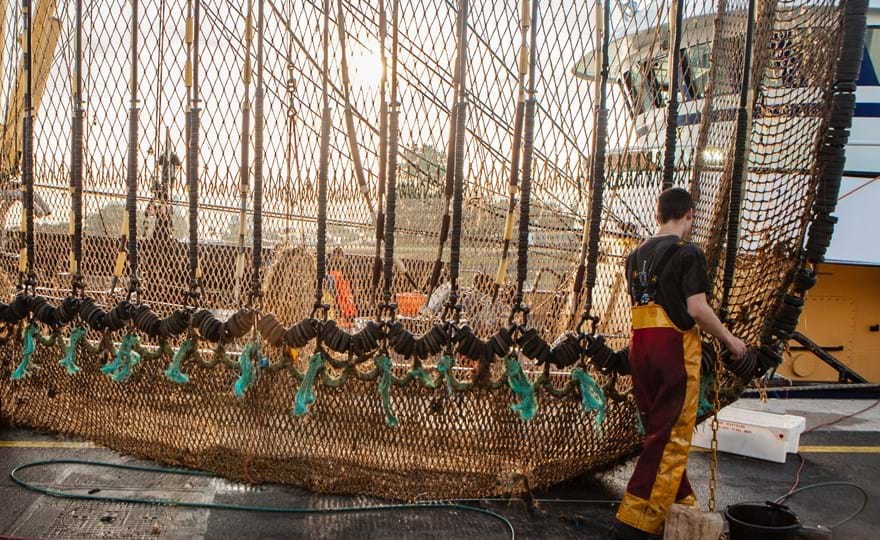ClientEarth Communications
8th June 2023


What happens at sea often remains invisible and outside the law. Despite a growing set of rules designed to regulate and manage the exploitation of the ocean, Illegal, Unreported and Unregulated fishing (IUU) is rampant. It represents as much as 20% of global catch and the annual loss to the global economy as these fish ‘leak’ from the system is estimated at $26 to $50 billion.
IUU fishing can take multiple forms – from fishing in forbidden zones to using the wrong gear, misreporting catches or throwing back unwanted accidental catches at sea. It is a threat to marine life but also to the people who rely on legal fishing for their livelihood. And by destroying ecosystems that enable the ocean to sustain us, IUU fishing is a threat to everyone on the planet.
That’s why ClientEarth is working hard to tackle it.
IUU fishing contributes to overfishing by disrupting national efforts to set sustainable catch limits and protect vulnerable populations. By acting outside of the rules, illegal fishers put everyone at risk of exploiting vulnerable fish populations. And in turn, by depleting fish stocks and compromising their ability to reproduce and replenish, they disrupt the delicate balance of marine ecosystems.
IUU often involves destructive fishing methods, such as bottom trawling or the use of illegal nets. These practices harm habitats like coral reefs, seafloor ecosystems, and other marine organisms, causing long-lasting damage to the marine environment.
It also leads to high rates of bycatch, the unintentional capture of non-target species. This includes endangered species like sea turtles, dolphins, and sharks, which are often killed or injured in the process.
This is a tragedy for the climate too – keeping carbon locked in the ocean relies on delicate teamwork between all the members of a functioning ecosystem. Without that, one of Earth’s biggest protections against climate change is neutralised.
IUU fishing undermines the livelihoods of law-abiding fishers and coastal communities who depend on marine resources for their income and sustenance. It creates unfair competition, lowers market prices, and reduces the profitability of legal fishing operations, leading to job losses and economic instability.
By depleting fish populations and reducing the availability of fish as a food source, IUU fishing affects food security, particularly in developing countries where fish is a primary source of protein for millions of people.
IUU fishing is often associated with exploitative labour practices, including forced labour, human trafficking, and poor working conditions on fishing vessels. Workers may be subjected to physical abuse, long working hours, and withheld wages, leading to grave human rights violations.
ClientEarth is using the law to combat this major threat to the ocean – and all of our health.
We have an ongoing legal challenge against the Dutch port authorities for not enforcing the law and potentially letting tonnes of fish fraudulently enter the EU market under their watch.
We are working on improving and enforcing laws designed to fight IUU fishing in Europe and beyond. For instance, we have successfully pushed for stricter EU rules to increase monitoring and control of fishing activities to tackle IUU fishing by EU vessels in and outside Europe.
And we are looking more and more into legal violations that impact communities all over the world – and how governments and companies will be held accountable for them.
To ensure the seafood on our plates in Europe has not come at the cost of people’s rights and the health of the climate, we are pushing countries to step up import controls and swiftly implement CATCH, the EU-wide digital system designed to make seafood traceable. We are also encouraging companies to improve checks on their seafood value chain for more traceability.
Efforts to combat IUU fishing require international cooperation, stricter regulations, surveillance and enforcement measures, and support for sustainable fishing practices to protect the wellbeing of both people and the planet. The law is a crucial part of the fight.